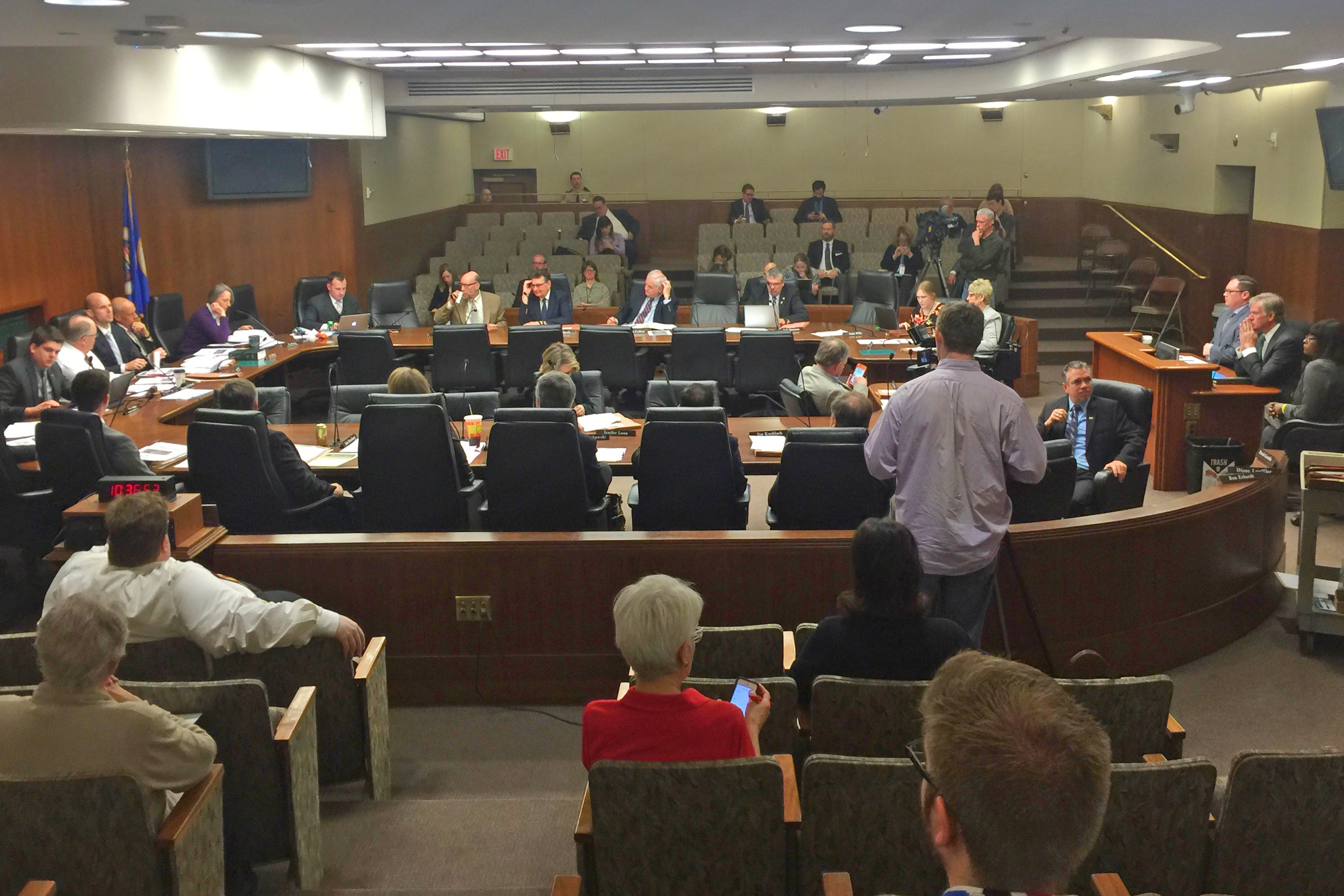The week is shaping up to be an important one for the Minnesota United stadium tax bills that are currently making their way through committees in both the Senate and House 2016 legislative session. It is believed that the measures will be tacked onto non-controversial omnibus bills. All omnibus bills have to be passed out of committee by this Thursday night setting up an interesting week of wait and see.
Last Wednesday, the house version of the bill was laid over for future action in the property division.
The following day an information session was had by the full house tax committee, which is Republican dominated, and the questions got a lot tougher. While Wednesday’s questions were—overall—polite in nature, Thursday found legislatures trying to make points on issues of the length of the lease (52 years), what might happen to the small businesses in the area, and if the tax break only shifts disposable income from one area of Minnesota to another. In each case, the questions all seemed to be easily answered by the bill’s sponsors, Rep. Tim Sanders (R-Blaine), and Rep. Rena Moran (D-St. Paul).
St. Paul Mayor Chris Coleman also testified and answered many of the questions and comments made by the committee members. Team owner Bill McGuire also spoke and fielded questions from the group.
Bob Barrett (R-Lindstrom) asked several leading questions of McGuire regarding MLS teams playing in American football stadiums and then asked the team owner where Atlanta would be playing next season. He then proceeded to ask McGuire why the team couldn’t play in the new U.S. Bank Stadium which he called, the “People’s Stadium.”
Like Wednesday, McGuire was again asked what would happen without a tax break on the stadium. He responded by saying that without those breaks it would be “very difficult for us to make that commitment.”
Not all members spoke against the bill. The measure has bi-partisan support and John Lesch (D-St. Paul) told a story of a recent trip to Buffalo Wild Wings, which he called bro-heaven, and said he was amazed at how full the restaurant was with soccer fans watching games. He said they clearly represented many cultures from around the world and was not your normal sports bar crowd.
Rep. Sanders talked extensively about the financial benefits Blaine, has reaped from the National Sports Center saying, a large portion of the cities economy has been built around and benefited from soccer.
Rep. Jenifer Loon (R-Eden Prairie) was persistent on the topic of fiscal disparities saying her city and others like it pay an unfair amount of industrial and commercial property taxes into a pool that goes to cities like St. Paul that have higher density and lower property taxes. She remarked that making the area tax exempt would only make the situation worse. Coleman rebutted. “Quite frankly, it’s the opposite,” explaining that the land was already tax-free. “But for this catalyst [of the stadium], the increase in surrounding tax values wouldn’t occur. We frankly would further the drain on the fiscal disparities pool.”
While there was plenty of posturing both days in the house, no one came out specifically against the bill or stated they would vote against it. Those familiar with the legislative process said the bill is still on a very positive track to get moved onto the House and Senate floors. The exact path the bill will take is still in flux and could come from the House or Senate. A lobbyist for the legislation said an exact path at the capitol has not yet been determined and lawmakers will be watching this week for whatever opportunity best presents itself.
The liquor portion of the bill associated with the stadium will likely go forward in a smaller omnibus measure which will also include Sunday sales. But that controversial measure will likely get amended out before it gets to the floor leaving a clear path for the liquor license portion of the stadium bill.
The House Tax Bill H3806, will likely be included in a larger omnibus tax bill that will contain, mainly, non-controversial measures.
One source explained that bill sponsor Rep. Sanders is well-liked and a quietly influential member of that House GOP caucus who would not get behind the bill if leadership were prepared to try to kill the effort. Tax Committee Chair Rep. Davids (R-Preston) will still need to push the bill forward, approve it, and send it to Ways and Means Committee. Ways and Means could hear the measure at any time and then send it to the floor.

Leave a Reply